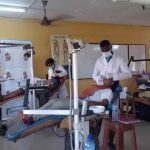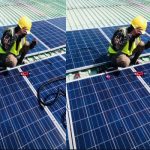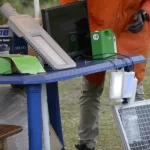With an estimated 80 million Nigerians lacking access to electricity, the federal government has introduced the e-HEART project, which aims to deploy mini-grids to address energy access issues in rural areas.
This initiative is expected to create sustainable local economies and curb rural-to-urban migration.
With a $750 million loan from the World Bank and ongoing challenges in achieving consistent power supply from the national grid, the federal government has shifted its focus to renewable energy to boost supply.
The federal government is prioritising renewable energy to increase electricity supply in critical areas like as education, healthcare, agriculture, rural communities, and transportation.
According to Abba Aliyu, Managing Director of the Rural Electrification Agency, the government has earmarked $700 million from the African Development Bank to fund the ‘Desert to Power’ initiative.
This scheme will use northern Nigeria’s tremendous solar resources to provide renewable energy for underprivileged populations.

Speaking at a stakeholder’s engagement workshop organised by the Rural Electrification Agency, REA, the Minister of Power, Adebayo Adelabu, said off-grid electricity supply had become a key component of the government’s plan to bridge the electricity supply gap.
Adelabu, who was represented by the Director, Renewable and Rural Power Access, Dr Sunday Owolabi, expressed optimism that the various projects in the renewable energy sector would impact at least 13 million Nigerians.














